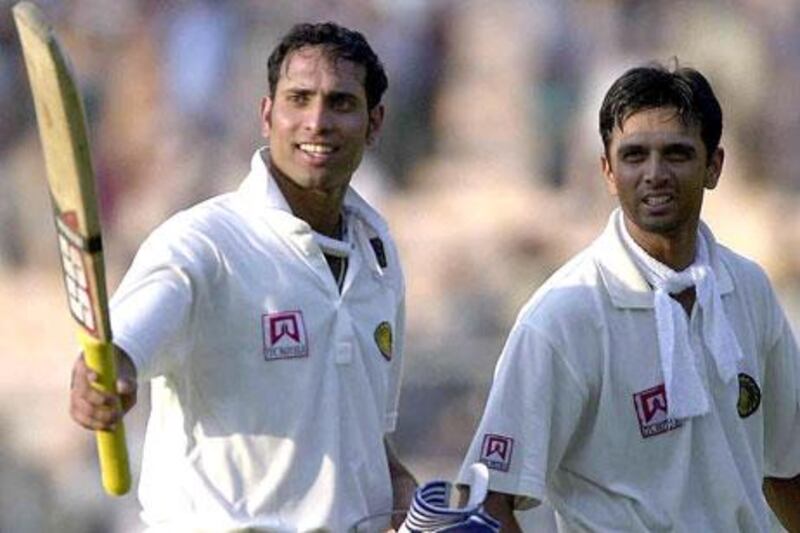A decade on, I can only think of it in terms of Mike Tyson. Steve Waugh's Australians evoked the same kind of awe as the former heavyweight boxing champion.
It did not matter who the opposition was. Glenn McGrath's bowling was the steady jab in the face, Shane Warne the dull thud into the kidneys and Adam Gilchrist the haymaker that laid you out. After 16 Test wins in a row, they arrived in Kolkata looking invincible.
What I remember most about the game is the sound of silence. Is there anything more eerie than almost 70,000 people reduced to near muteness?
That's what Australia did regularly for three days, resurrecting their first innings through Steve Waugh and Jason Gillespie and then dismantling India's batting as easily as Tyson had Carl "The Truth" Williams.
Every cricket fan knows what happened next. Having been in Istanbul on a May night in 2005, I found the similarities striking. The key word for most Liverpool fans then had been catharsis - of somehow putting the horror and guilt of Heysel behind them. Eden Gardens also needed to right the wrongs of the past.
Hooliganism had forced a World Cup semi-final to be abandoned in 1996, and further crowd trouble three years later - after the controversial run-out of Sachin Tendulkar - meant that an engrossing Test match against Pakistan finished in front of empty stands.
The noise levels as Australia succumbed on the final afternoon were beyond description.
From dull roars to high-pitched shrieks and yells, it had everything. The only thing louder that I can think of is a Jumbo Jet.
Kolkata's sense of pride was more intense because one of their own was leading the side.
With VVS Laxman and Rahul Dravid stealing the headlines before Harbhajan Singh scripted some for himself, few now recall Sourav Ganguly's 48 in the second innings.
He had been sledged incessantly over an alleged affair with an actress and the response, though hardly his most fluent effort, did much to convey the message that India would not roll over and play dead. To understand the pressure of leading India, you only have to look at Ganguly's figures. Prior to that series, he averaged nearly 47 as a batsman.
After he lost the captaincy at the end of 2005, he scored 44 an innings. In between, with the weight of expectation on his shoulders, the figure was 36.
In a sense, Kolkata changed everything. Before that, supporters were used to India being tigers at home and lambs away.
Even if it was on home turf, victory over Australia - one of the great sides in Test history - convinced many that anything was possible, that India finally had a team capable of matching the fans' fervour for the sport.
It changed the players' lives too. Before, Tendulkar was the presiding deity and the rest were minor idols. Post-Eden, the pantheon got larger.
The first time I interviewed Dravid, a year on from Kolkata, we stopped off briefly at a sporting-goods showroom that he had to inaugurate.
He was mauled, and lucky to leave in one piece. By then, the idea of going out for a quiet meal with friends or family had become impossible.
Over the next two years, the team reached a World Cup final, nearly beat Australia in Australia and won in Pakistan for the first time. New heroes were unearthed. MS Dhoni, one of them, now rivals Tendulkar for popularity and has surpassed him in the endorsement stakes.
Back in 2001, Indian cricket was rich, but it hadn't yet become Warren Buffett or Bill Gates. It was also still a game. The Indian Premier League, its vast riches and made-for-television razzmatazz, was still in the future, as was the board's near vice-like grip on the global game.
I watched another remarkable match at Eden Gardens last year, with South Africa's defiance ending only in the final moments of the fifth day's play. It was not quite the same. As good as they were, South Africa were not Australia circa 2001. They were not Mike Tyson scary.
On the 10th anniversary of the victory, Laxman happened to be in Bangalore to train at the academy. He and Dravid dined together, even if they did not initially realise the significance of the date.
As the sand trickles to the bottom of the timer, both can take satisfaction from the fact that they have been cornerstones of the best Indian side ever.
A lot can happen in one day.





